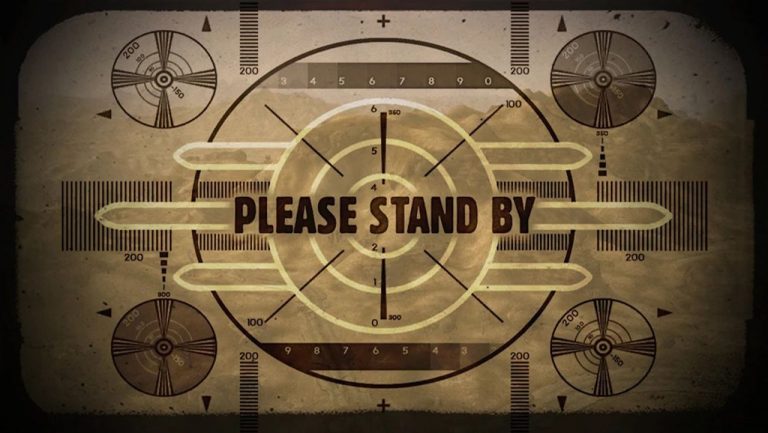In the vast universe of city-building simulations, “Cities: Skylines 2” stands as a monumental testament to urban planning, creativity, and strategy. Whether you’re a seasoned city planner or a newcomer eager to craft your first metropolis, the game offers a plethora of opportunities to shape sprawling landscapes into thriving urban centers. But with great power comes great responsibility, and the task of building a city from scratch is no small feat.
The complexity of “Cities: Skylines 2” lies not just in its intricate mechanics but also in the countless decisions that players must make. From zoning and infrastructure to public services and transportation, every choice can have ripple effects throughout your city. It’s this intricate dance of decisions, both big and small, that make each player’s city a unique reflection of their vision and strategy.
However, the journey from a blank map to a bustling city is filled with challenges. While the game provides the tools, it’s up to the player to harness them effectively. This is where strategy and foresight come into play. The most successful cities aren’t just built; they’re carefully planned, adapted, and nurtured to greatness.
In this guide, we delve into key strategies and insights to help you navigate the intricate world of “Cities: Skylines 2.” From foundational tips for newcomers to advanced tactics for veteran players, our goal is to equip you with the knowledge to not just build a city, but to master the art of urban planning.
9 Tips for Cities Skylines 2
Diving into the intricate world of “Cities: Skylines 2” offers both a rewarding challenge and an opportunity to manifest your vision of the perfect metropolis. As the successor to one of the most beloved city-building games, this sequel brings forth an array of new mechanics and features. While the game provides the tools, it’s crucial to employ a blend of creativity, foresight, and strategy. Begin by focusing on your city’s foundational elements – infrastructure, transportation, and public services. A well-laid foundation ensures a smoother expansion and fewer hiccups as your city grows.
Moreover, it’s essential to be adaptable. Unlike its predecessor, “Cities: Skylines 2” introduces dynamic elements and challenges that can change the trajectory of your urban planning. Whether it’s adapting to changing weather patterns or responding to the evolving needs of your citizens, being flexible in your approach is key. And remember, while the game might currently have areas of improvement in graphics and performance, the essence of city-building remains at its core. Embrace the challenges, learn from your missteps, and always keep an eye on the bigger picture of creating a thriving urban haven.
Leverage the Power of Autosaves for Smooth Gameplay
The autosave feature is invaluable in a game like Cities: Skylines 2, where a single mistake can cascade into a massive city-wide issue. Having regular autosaves ensures that if something goes catastrophically wrong—whether it’s a misplaced highway or a flooded neighborhood—you won’t lose too much progress. It’s better to rewind a few minutes than lose hours of meticulous city planning.
Rethink Immediate Power Plant Construction
While it might be tempting to kickstart your city with the best and biggest power plant, it’s often more economical to wait. Smaller power sources, such as wind turbines, can provide enough juice for your budding town, saving you money. As your city grows, you can then invest in larger power solutions to meet the increasing demand.
Wisely Allocate Your Development Points
In Cities: Skylines 2, development points are a crucial resource that dictates the progression of your city. It’s essential to be judicious in how you spend them. For instance, while adding a new zone might seem like a good idea, it might be more beneficial to upgrade existing ones. This ensures that your city grows sustainably, balancing both expansion and improvement.
Prioritize Upgrading Over Building New Service Structures
Before splurging on new service buildings, consider upgrading your existing ones. Upgrades can significantly boost the efficiency of service buildings, ensuring that they serve more citizens without occupying additional land. This strategy not only saves you money but also ensures a more compact and efficient urban layout.
Unlock Map Tiles with a Clear City Vision in Mind
Map tiles in Cities: Skylines 2 aren’t just additional land—they’re opportunities for strategic expansion. When deciding which tile to unlock next, consider your city’s long-term goals. Whether it’s expanding your industrial zones, adding a new suburb, or creating a recreational lakefront, each tile should align with your overarching city plan.
Delve into Reasons Buildings Might Not be Progressing
If you notice that some of your buildings aren’t upgrading despite providing all necessary services, it might be time to do some detective work. Various factors, ranging from land value to local amenities, can influence a building’s upgrade potential. Investigate the surrounding area, ensure all services are adequately provided, and consider adding parks or unique buildings to boost appeal.
Water and Sewer Pipes Require Manual Bridge Placement
In Cities: Skylines 2, the convenience of having water and sewer pipes automatically attach to roads can sometimes lead to oversight. When constructing bridges over rivers, remember to manually connect these services. While this might seem like a minor detail, forgetting to do so can lead to significant issues, especially if a community on the other side of the river suddenly finds itself without essential utilities.
Embrace Green Energy Options for Sustainable Growth
As your city expands, its energy demands will inevitably rise. While traditional power plants can meet these demands, consider integrating green energy solutions. Wind turbines, solar farms, and other renewable sources not only reduce your city’s carbon footprint but can also lead to long-term economic savings.
Optimize Public Transport Routes for Efficient Commuting
A well-planned public transportation system can be the backbone of a thriving metropolis. Ensure that your bus, tram, and subway routes are optimized to serve the most significant number of citizens. Regularly review and adjust these routes, especially as new neighborhoods emerge and the city’s layout evolves beyond a basic “Chess board” pattern.
Closing Thoughts: Cities Skylines 2
As we draw our urban exploration to a close, we recognize that “Cities: Skylines 2” is more than just its pixels and frames per second. While the game might not currently boast the sharpest graphics or the smoothest FPS, it’s essential to remember that games, much like cities, evolve over time. The developers are hard at work, and with each update, we can anticipate enhancements that will bring richer visuals and smoother gameplay.
The heart of “Cities: Skylines 2” lies not in its technical prowess but in the stories it allows us to craft, the challenges it presents, and the solutions we, as players, bring to the table. Every city we build, despite the current graphical limitations, is a testament to our vision, adaptability, and perseverance.
While we eagerly await the game’s visual and performance upgrades, let’s not lose sight of its core appeal: the joy of creation and the intricacies of urban management. We hope this guide has illuminated pathways to success and enriched your gameplay experience. As you continue your journey, remember that the essence of the game is in your strategies and stories, not just in the pixels on the screen.
In the world of gaming, as in city-building, the future holds endless possibilities. Happy building, and here’s to a brighter, sharper, and smoother future for your metropolis!
The post Cities: Skylines 2: Top Strategies for Mastering Your Metropolis appeared first on LitRPG Reads.











